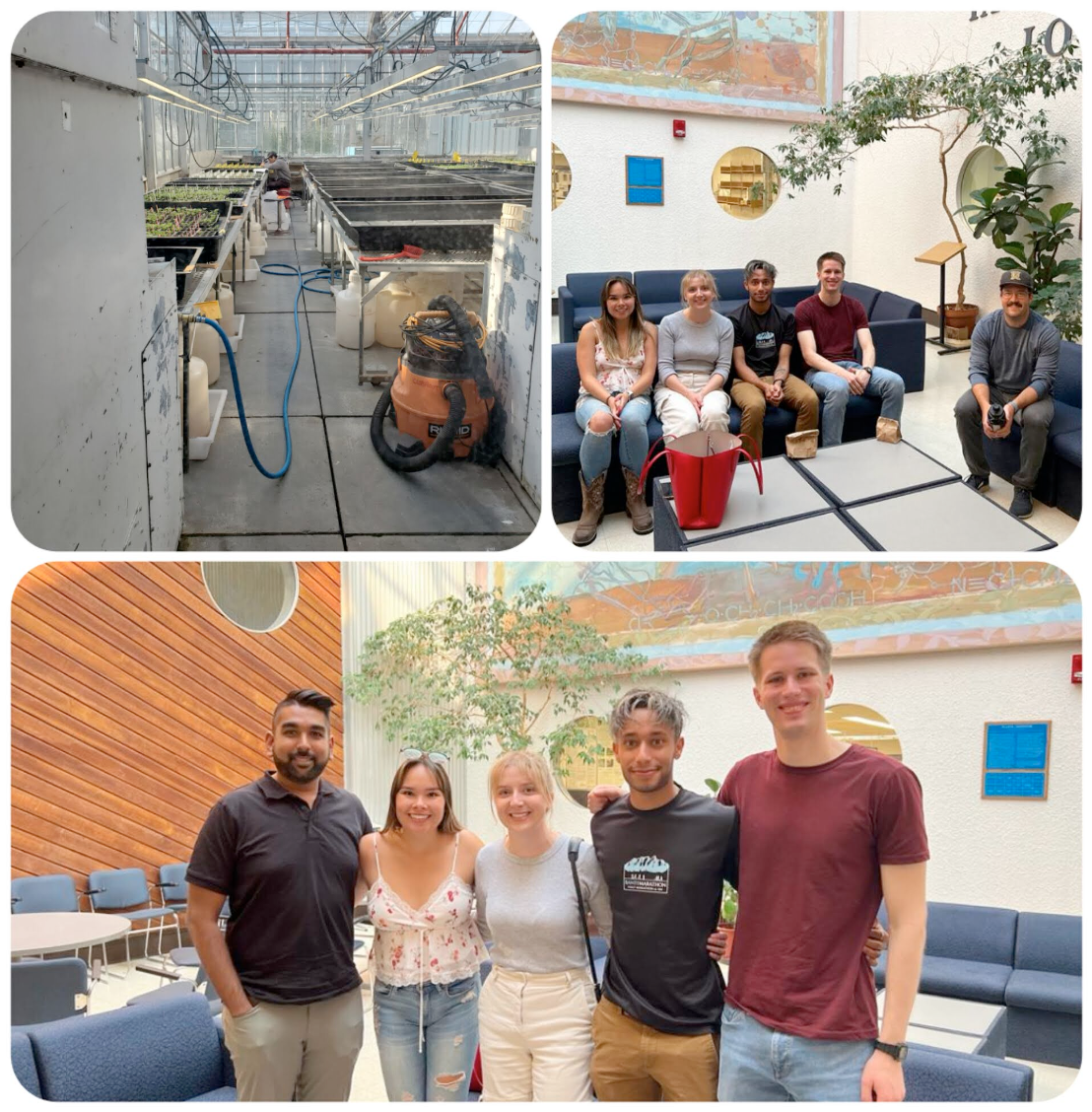Founded in 2003 as a competition at MIT, iGEM (international genetically-engineered machine), has grown into a globally recognized organization that promotes the potential of synthetic biology in addressing real-world problems. Every year, teams present their projects at the annual Grand Jamboree, demonstrating innovation, determination and transformative solutions.
At the University of Lethbridge, the award-winning undergraduate and high school iGEM teams are spending their summers focusing on separate but critical projects in counteracting clubroot and targeting disease in aquaculture.
The Collegiate Team: Counteracting Clubroot
This year, supervised by Dr. Vineet Rathod, the ULethbridge iGEM team is working on creating a direct and rapid detection kit for clubroot. Clubroot is a soil-borne protist pathogen and poses a significant threat to brassica crops, such as canola, cabbage, broccoli and cauliflower. The pathogen creates "clubs", or galls, on the roots, resulting in nutrient deficiency, plant death and massive yield loss. The robust nature of the pathogen allows it to remain dormant for years and continually reinfect crops.

A lot about clubroot still remains uncertain, as its genome has not been sequenced due to the difficulty in isolating a single resting spore. Although there have been advances in this area in recent years, once a field has been infected, there are no effective mitigation techniques in place to combat the pathogen. Common methods used by farmers include rotating their crops every other year to not plant canola, and field liming to keep the pH of the field higher; however, liming an entire field is cost-ineffective as it costs about $60 to $80 per acre, and the average Albertan farm is 1,055 acres.
The impact on the local economy is considerable, with canola being a crucial export for the Canadian and Albertan economies. The need for effective detection and mitigation techniques is urgent. The ULethbridge iGEM team’s project this year is called Club2 (club-squared). The project, motivated by many of the team members' deep ties to the farming community, represents their passion to make a tangible difference towards local issues in an agricultural province.

The team is working towards creating a direct detection kit that would help farmers know if clubroot is present in their fields before crops are sown, providing vital information regarding the severity and the location of infected areas within their fields. The current detection method is a PCR test, which is more costly than liming the field, as each test is about $95 per soil sample. Detecting clubroot within different areas of the field would require multiple soil samples, quickly multiplying the cost.
The direct detection kit would be an on-field test, while also being more cost effective and having a quicker turn-around than the weeks-long timeline for submitting a soil sample and receiving a PCR result. Inspired by the COVID-19 direct antigen test, this method would use a protein target essential for clubroot's survival and spread as its detection target. Further research and characterization of the protein target will also give insights regarding its feasibility as a mitigation target beyond detection.


The team recently traveled to Edmonton for a hands-on learning experience with Corteva, an agri-science company, where they saw clubroot-infected canola fields first-hand and learned more about clubroot's spores and galls. They were also able to discuss the project with top scientists working in this sector, gaining valuable insights into practical implementation of the project and next steps. The team also visited their lab at the University of Alberta, where they run PCR tests to isolate the pathogen's spores, and experiment with the clubroot’s spores and galls.
This fall, the team will be competing at the iGEM Grand Jamboree in Paris, France, to showcase their work on the clubroot detection system. This competition offers an opportunity for the team to learn, share and collaborate with synthetic biology experts. Wish them luck as they compete on a global platform with many other prestigious teams from around the world!
The High School Team: Making Waves in Aquaculture
The dedicated high school iGEM team is diving into a growing concern in Alberta's burgeoning aquaculture industry. Their project, supervised by Dr. Laura Keffer-Wilkes (MSc '12, PhD '16), is called ChromoSense and aims to combat disease in aquaculture, a problem that often goes unnoticed until it's too late.
ChromoSense focuses on creating a protein-based biosensor that is both easy-to-use and rapid in detecting common aquatic pathogens. This innovation will serve both industrial aquaculture and personal aquatic pet owners, ensuring healthier aquatic environments.
To deepen their understanding of the aquaculture industry and disease detection needs, the team recently visited the Aquaculture Centre of Excellence at Lethbridge College, where they had the opportunity to discuss potential applications of their ChromoSense project.


The high school team is organizing an arts showcase and silent suction at the CASA Community Room on August 15, from 6:30 to 8 p.m. Admission is by donation. Come by to show your support for the high school team that continues to impress with their passion and innovation, embodying the ethos of synthetic biology in solving real-world problems!